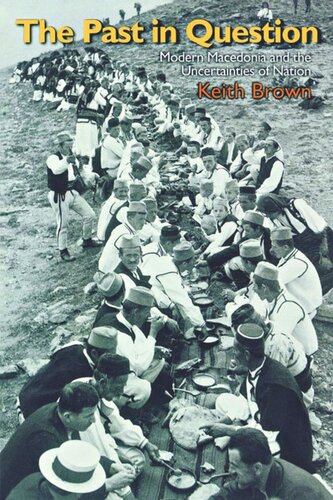

Most ebook files are in PDF format, so you can easily read them using various software such as Foxit Reader or directly on the Google Chrome browser.
Some ebook files are released by publishers in other formats such as .awz, .mobi, .epub, .fb2, etc. You may need to install specific software to read these formats on mobile/PC, such as Calibre.
Please read the tutorial at this link: https://ebookbell.com/faq
We offer FREE conversion to the popular formats you request; however, this may take some time. Therefore, right after payment, please email us, and we will try to provide the service as quickly as possible.
For some exceptional file formats or broken links (if any), please refrain from opening any disputes. Instead, email us first, and we will try to assist within a maximum of 6 hours.
EbookBell Team

5.0
60 reviewsThis book examines the relationship between national history, identity, and politics in twentieth-century Macedonia. It focuses on the reverberating power of events surrounding an armed uprising in August 1903, when a revolutionary organization challenged the forces of the Ottoman Empire by seizing control of the mountain town of Krusevo. A century later, Krusevo is part of the Republic of Macedonia and a site for yearly commemorations of 1903. In the course of the intervening hundred years, various communities have vied to establish an authoritative account of what happened in 1903--and to weave those events into a longer and wider narrative of social, cultural, and national evolution.
Keith Brown examines how Krusevo's residents, refugees, and exiles have participated--along with scholars, journalists, artists, bureaucrats, and politicians--in a conversation about their vexed past. By tracing different approaches to understanding, commemorating, and narrating the events of 1903, he shows how in this small mountain town the "magic of nationalism" by which destiny is written into particular historical events has neither failed nor wholly succeeded. Stories of heroism, self-sacrifice, and unity still rub against tales of treachery, score settling, and disaster as people come to terms with the legacies of imperialism, socialism, and nationalism. The efforts of Krusevo's successive generations to transcend a past of intercommunal violence reveal how rival claims to knowledge and truth acquire vital significance during rapid social, economic, and political change.